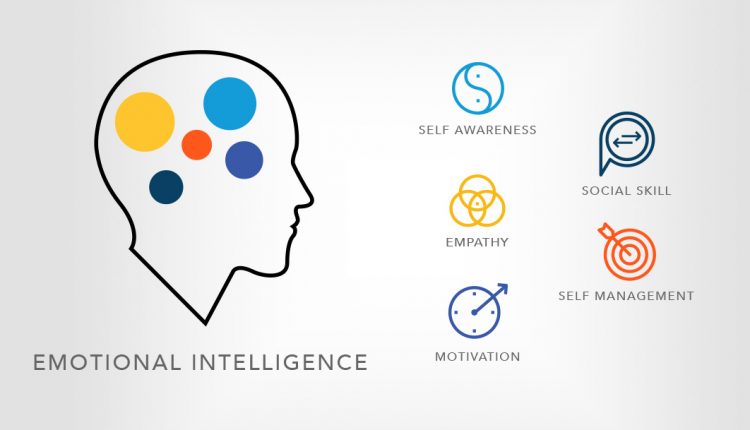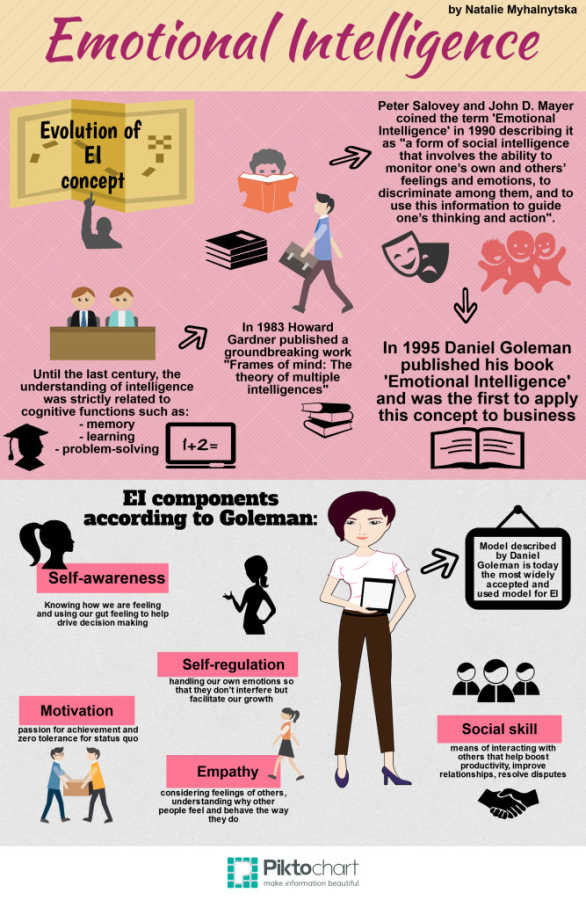LET’s BE SMARTER WITH FEELINGS
We develop most of the skills in our life to be consistent and competitive in our professional and personal life. The most skills we adapt and strengthen, the more we become stronger to overcome the difficulties and progress in both our workplace and life. When we talk about skills we mostly work on our interpersonal, leadership, soft skills, presentation skills etc but to sustain for a long run the much need skill is “Emotional Intelligence” which most of us fail to work on it and if we do not work on it then even if we are the best at our work , it will become a barrier to many of the aspects.
The two most Intelligence part of Human are- Intelligence Quotient (IQ) and Emotional Intelligence (EI)
Intelligence Quotient (IQ) is designed to measure intellectual intelligence, it gives a score from a series of tests. Higher IQs indicate better cognitive abilities, or the ability to learn and understand. People with higher IQs are more likely to do well academically without exerting the same amount of mental effort as those with lower IQ scores. A logical assumption, therefore, is that people with higher IQs will be more successful at work and through life. This assumption has been proven incorrect – there is more to success than simply being ‘clever’.
Emotional Intelligence (EI) is the capability of individuals to recognize their own, and other people’s emotions, to discriminate between different feelings and label them appropriately, to use emotional information to guide thinking and behavior, and to manage and/or adjust emotions to adapt environments or achieve one’s goal. people with high EI have greater mental health, job performance, and leadership skills.
The most important aspect of EI-
- People with higher EI find it easier to form and maintain interpersonal relationships and adapt in a team and perform pretty well when in a group or a team. Since nowadays we mostly work as a team or group to achieve the goal or a target.
- The next most important aspect is we face a lot of pressure and stress at our workplace and EI helps us in better understanding our own psychological state of mind to manage with stress and pressure in both workplace and life so that it does not lead to depression. As most of the individual get into depression either in their work or life and it is one of the most dangerous things and to manage it, we need to work on EI.
Factors of EI-
If we look into Daniel Goleman book on “Emotional Intelligence” published on 1995 and it was one of the “The New York Times” bestseller books, he has mentioned the important factors of EI- Personal Skills and Social Skills. Within these two skills that are other elements.
Personal Skills-
The skills basically include to manage ourselves and know us better.
Self Awareness:
Self Awareness is the skill to analyze and aware of our emotions as they occur and evolve. Before reacting to any situation, we must understand the situation and act accordingly.
It includes- Emotional Awareness, Self Assessment and Self- Confidence.
Anger is usually associated with being a negative emotion. However, it can be a completely reasonable and appropriate emotion in certain circumstances – emotional intelligence allows us to recognize our anger and understand why this emotion has occurred.
Self Management:
Self Management basically counts on the emotion which we are feeling at any given point of time or in any particular situation and how well are we managing and controlling ourselves whether in a positive or negative manner.
It includes- Self Control, Trustworthiness, Conscientiousness, Adaptability and Innovation.
Motivation:
Self-motivation includes our personal drive to improve and achieve, commitment to our goals, initiative, or readiness to act on opportunities, and optimism.
We should start saying “NO” and should learn to be assertive rather than just say “YES” to the demand of others.
It includes- Achievement, Commitment, Initiative, and Optimism.
Social Skills-
Social Skills can be interpersonal skills, we use to interact with others. They enable us to communicate appropriately and build stronger, more meaningful relationships. Emotional intelligence includes how we understand others and their emotions, and our actions and behaviors towards them.
Empathy:
Empathy is the ability to understand or feel what the other person is experiencing and being able to see things from the point of view of others. Empathy is more often difficult to achieve. We should learn to listen effectively to both the verbal and non-verbal messages of others, including body movements, gestures and physical signs of emotion.
It includes- Understanding others, Developing/help others to grow, Service orientation, Leveraging diversity and Political awareness.
Social Skills:
Social Skills includes a wide range of relationship, interpersonal and leadership skills to influence, persuade and manage conflicts and issues and work better as a team.
The term ‘social skills’ covers a wide variety of skills and competencies, many of which are rooted in self-esteem and personal confidence. By developing our social skills, being easy to approach, being a good listener, sharing and trustworthy also become more charismatic and attractive to others.
This, in turn, improves self-esteem, confidence and a greater understanding and acceptance of our own emotions.
It includes- Influencing and Persuasion skills, communication, Conflict Management, Leadership, Change Management, Rapport building, Team-working skills.
Working on our Emotional Intelligence will enhance the aspect of our personality development. People with higher EI have their most satisfying and successful careers or relationships.
I would recommend the book written by Travis Bradberry – “Emotional Intelligence 2.0” which features the proven strategies for EI.


